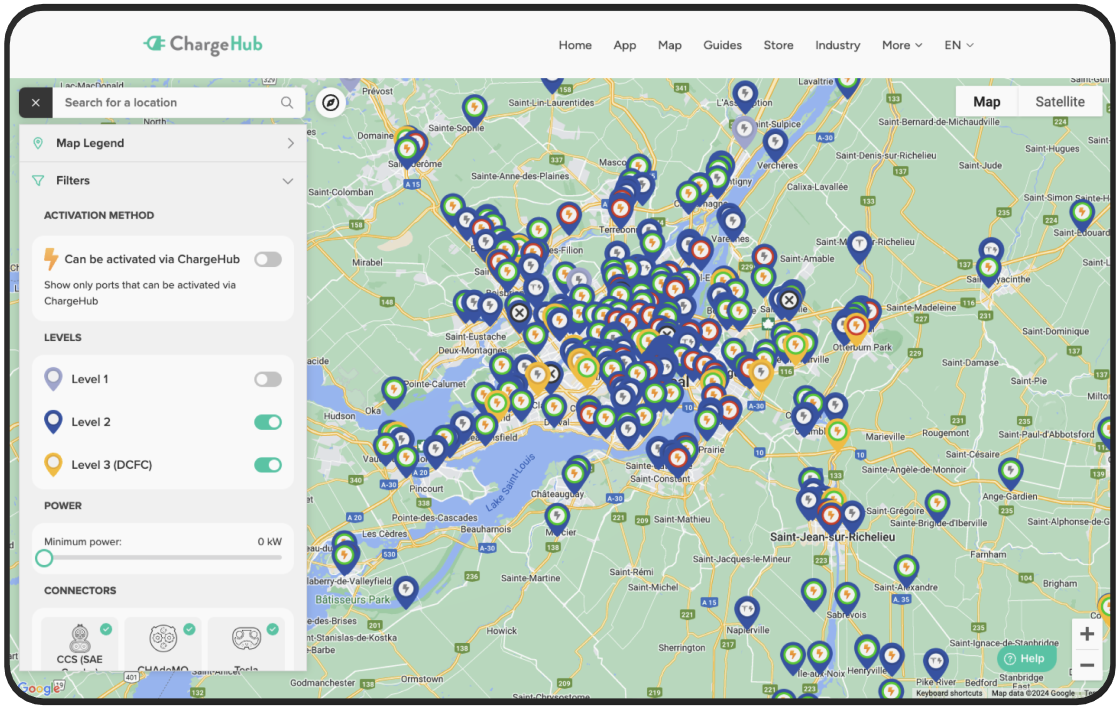-
EV Business Solutions
-
EV Drivers
-
Our Company
-
Resources
Rebates for home EV chargers in Canada (2025 update)
Are you considering buying your first electric vehicle (EV)? Perhaps you're on the waitlist for the latest EV models? Or maybe you’ve already made the switch to an EV and are now ready to install a home charger?
For many new or potential EV owners, one of the most confusing parts of the transition to a zero-emission vehicle is navigating the process of selecting, purchasing, and installing a Level 2 home EV charger. However, with 80% of EV charging happening at home, installing an EV charger at your residence is a key step in maximizing the savings and benefits that come with owning an EV.
The good news is that every year, more governments, municipalities, utilities, and businesses are offering rebates to help new EV owners. To make it easier for you, we’ve updated our guide: Rebates for Home EV Chargers in Canada.
We strongly recommend checking out the available rebates as soon as possible, as some are offered on a first-come, first-served basis, while others may have specific application deadlines. So, let’s dive in and get started!
Search by province
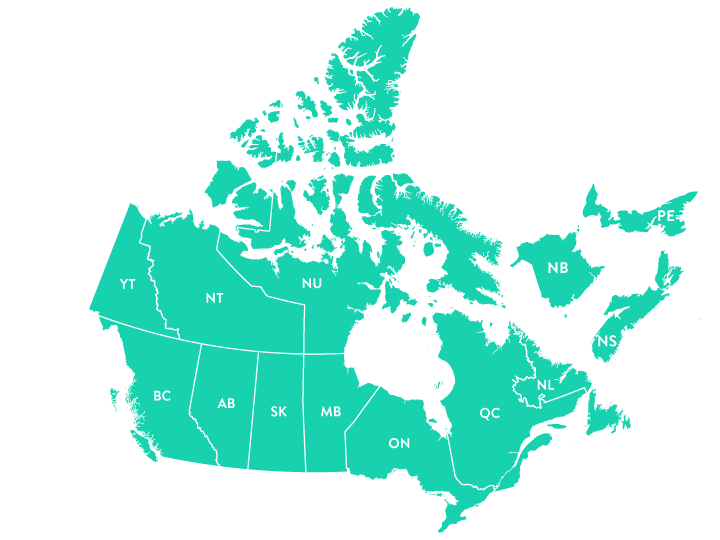
-
Home charging stations grants in Alberta
-
Home charging stations grants in British Columbia
-
Home charging stations grants in Manitoba
-
Home charging stations grants in New Brunswick
-
Home charging stations grants in Newfoundland and Labrador
-
Home charging stations grants in Nova Scotia
-
Home charging stations grants in Northwest Territories
-
Home charging stations grants in Nunavut
-
Home charging stations grants in Ontario
-
Home charging stations grants in Prince Edward Island
-
Home charging stations grants in Quebec
-
Home charging stations grants in Saskatchewan
-
Home charging stations grants in Yukon
Home EV charging station rebates in Alberta
Currently, there are no grants for the purchase and installation of a home charging station in Alberta.
However, the Government of Canada is offering a discount to consumers who buy or lease eligible zero-emission vehicles (ZEV).
Incentive for Zero-Emission Vehicles (ZEV) Program - Canada-wide
Albertans can also look to the federal government which offers significant rebates up to $ 5 000 to Canadians who buy or lease eligible zero-emission vehicles (ZEV). The following vehicles are considered to be ZEVs:
- battery-electric
- plug-in hybrid electric
- hydrogen fuel cell
There are two types of rebates:
- Battery-electric, hydrogen fuel cell and plug-in hybrid cars with long range (battery capacity equal to or greater than 50 km) are eligible for a $5 000 purchase rebate;
- Plug-in hybrids with a shorter range (battery capacity under 50 km) are eligible for a $2 500 rebate.
Important Update as of October 1, 2024:
Only zero-emission vehicles (ZEVs) that are made in Canada or in countries with which Canada has a free-trade agreement may be eligible under the Incentives for Zero-Emission Vehicles (iZEV) Program and the Incentives for Medium- and Heavy-Duty Zero-Emission Vehicles (iMHZEV) Program.
For ZEVs manufactured in a country with which Canada does not have a free trade agreement, they may still be eligible if they are already in Canada or are in transit to Canada before October 1, 2024. For eligibility purposes, "in transit" refers to goods destined for Canada that are under the custody and control of a carrier.
For more information, visit the Government of Canada’s website.
![]()
Home EV charging station rebates in British Columbia
As a pioneering province in the electrification of transportation in Canada, the government of British Columbia has maintained rebates for the purchase of charging stations in 2024.
1) BC Hydro: Go Electric rebates for home & workplace EV charging
The government of British Columbia, in partnership with BC Hydro and FortisBC, has developed the provincial CleanBC Plan initiative to offer rebates for the purchase of electric vehicle charging stations in the province.
Since June 15, 2023, BC Hydro no longer accepts rebate applications for single-family homes and "EV Ready" projects for apartments/condos. However, BC Hydro customers can now benefit from Canadian government funding for the installation of charging stations in multi-unit residential buildings.![]()
The rebates offered by the BC Hydro | Go Electric program vary depending on the type of property:
- Single family homes, including duplexes and townhouses with private garages or dedicated parking
- A rebate of up to 50% of the purchase and installation costs of an eligible Level 2 EV charger, to a maximum of $350.
Learn more about the EV charger rebate program for single-family homes and apply here.
- A rebate of up to 50% of the purchase and installation costs of an eligible Level 2 EV charger, to a maximum of $350.
- Apartment and condo buildings
- EV Ready rebates: You can apply for these rebates together to streamline the EV-related upgrades to your building, or you could apply for them one at a time as your project progresses.
- A rebate of up to $3 000 for the creation of an EV Ready plan – a professional strategy for your building to make at least one parking space per residential unit EV Ready.
- A rebate of up to $600 per parking stall, to a maximum of $120,000 to install the electrical infrastructure in order to implement your EV Ready plan.
- A rebate of up to $1,400 per charger, to a maximum of $14,000, is available to purchase and install Level 2 networked EV chargers at your building, in order to implement your EV Ready plan.
- A rebate of up to $3 000 for the creation of an EV Ready plan – a professional strategy for your building to make at least one parking space per residential unit EV Ready.
- Standalone EV charger rebate
- A rebate of up to $2,000 per charger to a maximum of $14,000, to purchase and install Level 2 networked EV chargers at your building’s residential parking spaces.
Learn more about the EV charging rebates for apartment and condo buildings and apply here.
- A rebate of up to $2,000 per charger to a maximum of $14,000, to purchase and install Level 2 networked EV chargers at your building’s residential parking spaces.
- EV Ready rebates: You can apply for these rebates together to streamline the EV-related upgrades to your building, or you could apply for them one at a time as your project progresses.
-
Workplaces: Organizations and businesses can submit separate applications for different locations, up to a maximum of four.
- A rebate of up to $2 000 per charger is available, to a maximum of $14 000, to purchase and install eligible Level 2 networked EV chargers for employee use.
For this rebate, organizations will need to receive a pre-approval from BC Hydro. To learn more about this EV charging rebate, visit : BC Hydro - EV charger rebates.
- A rebate of up to $2 000 per charger is available, to a maximum of $14 000, to purchase and install eligible Level 2 networked EV chargers for employee use.
- Indigenous community offers: Indigenous communities in B.C. are eligible for a rebate of up to 75% of an eligible level 2 EV charger purchase and installation costs, up to these maximum amounts:
-
- Single-family homes: A rebate of up to $750
- Apartment and condo buildings: A rebate of up to $4 500 per EV charger
- Workplaces: A rebate of up to $4 000 per EV charger
To be eligible for the program, home EV charging stations (level 2) must be:
- Ordered, purchased and installed and have been subject to a request within 90 days of charger installation.
- Purchased (not rented)
- Approved for sale and use in Canada and certified cUL, ULC, cETL,CSA or cQPS.
- Equipped with a standard SAE J1772 connector (the only exception to the requirement is the Tesla wall connector)
- New, unused or refurbished
- Wall-mounted or pole installation at the electrical service address provided in the grant application
See the full list of eligible home charging stations
For more information about the CleanBC - Go Electric Strategy, visit the Government of British Columbia’s website.
2) FortisBC : Go Electric rebates for home & workplace EV charging
To help you get ready for lower carbon transportation options such as electric vehicles (EVs), FortisBC is offering rebates to BC residents for purchasing and installing an EV charging station at home, at multi-unit residential buildings and workplaces. You must be a residential FortisBC electricity or municipal electricity customer of Grand Forks, Penticton, Summerland or Nelson Hydro.
The program offers EV rebates for the following properties:
- Single-family detached homes; mobile homes on a permanent foundation; or side-by-side duplexes, row homes or townhouses with individual electricity meters and garages or dedicated parking for the residents of each unit
- A rebate of up to 50% of the purchase and installation costs of an eligible Level 2 EV charger, to a maximum of $350.
- A rebate of up to 50% of the purchase and installation costs of an eligible Level 2 EV charger, to a maximum of $350.
- Multi-unit residential buildings and workplaces constructed before August 31, 2021 (i.e. new construction buildings are not eligible)
- A rebate of up to 75% of eligible purchase and installation costs,* up to $5 000 per station, to a maximum of $25 000 per application.
- For a limited time, the City of Kelowna is offering an additional supplement of $2 000 for eligible electric vehicle charging station installations in multi-unit residential buildings, up to a maximum of $6 000 per application. The Kelowna EV charging rebates are administered by FortisBC.
- A rebate of up to 75% of eligible purchase and installation costs,* up to $5 000 per station, to a maximum of $25 000 per application.
To be eligible for the program, home EV charging stations (level 2) must be:
- purchased, not leased
- approved for sale and use in Canada and certified cUL, ULC, cETL,CSA or CQPs.
- equipped with a standard SAE J1772 connector (the only exception to the requirement is the Tesla wall connector)
- can be hardwired or wall mounted with a 240V outlet
- must be networked and connected via standard internet protocol to a central system using either open communication protocols (such as OCPP, OpenADR, or other) or a proprietary system
- installed by a licensed electrical contractor
- must have an oversized conduit installed to allow for future growth (i.e. to be capable of supplying service to at least six Level 2 charging stations at 40A each, or the total number of parking stalls, whichever comes first)
See the full list of eligible home charging stations
Within 90 days of your equipment installation, apply online on the FortisBC portal for your rebate

Home EV charging station rebates in the District of Squamish, British Columbia
Rebates available for single family homes: up to $350
Rebates available for apartments/condos: up to $1 000 per charger
If you reside in the District of Squamish, British Columbia, you can combine the provincial rebate for the purchase of a single-family home charging station with an additional rebate of $150 for residential charging stations for single-family homes offered by the District of Squamish.
The same principle applies for apartments and condos. It is possible to combine the provincial rebate for multi-unit residential buildings with an additional rebate of up to $1 000 offered by the District of Squamish.

Home EV charging station rebates in the Kamloops, British Columbia
Rebates available for single family homes: up to $350
Rebates available for apartments/condos: up to $1 000 per charger
If you reside in the city of Kamloops, British Columbia, you can combine the provincial rebate for the purchase of a single-family home charging station with an additional rebate of $150 for residential charging stations for single-family homes offered by the City of Kamloops.
The same principle applies for apartments and condos. It is possible to combine the provincial rebate for multi-unit residential buildings with an additional rebate of up to $1 000 offered by the City of Kamloops.
Note that there is no separate application process to receive the additional rebates. Simply submit your application to the British Columbia rebate program. If your application is approved and the address of the house/apartment/condo where the charging station will be installed is located in the city of Kamloops, the value of the discount will be automatically added to the amount of the provincial rebate.

Home EV charging station rebates in Manitoba
Although there are currently no provincial home EV charging stations rebates in Manitoba, Level 2 chargers are eligible for financing under the Home Energy Efficiency Loan.
1) Home Energy Efficiency Loan - Manitoba Hydro
The Energy Efficient Home Loan offers a convenient and affordable financing option if you want to make energy-efficient improvements to your home. The amount of your monthly payment will be added to your energy bill. No down payment is required.
The maximum amount eligible for financing is $ 3,000 per EV charger.
To be eligible for this loan, you must:
- Manitoba Hydro must approve your application before any work is started or any materials are purchased.
- You must be the owner of the home in which energy improvements are made.
- You must have an active Manitoba Hydro account and be approved for credit from Manitoba Hydro.
- The building must be your primary residence or the primary residence of your tenant.
- Mobile homes on permanent foundations with a permanent water supply are eligible. For geothermal and solar photovoltaic systems, you must own the land where the mobile home is located.
- Indigenous customers living in Band-owned homes are eligible for financing with a Band Council Resolution.
- The home must be detached or semi-detached.
- Upgrades must be made to the recommended levels.
How to apply
An authorized Program supplier (contractor or retailer) will work with you to determine if your project is eligible for funding and help you complete the loan application.
For more information, please visit the Manitoba Hydro website.

Home EV charging station rebates in New Brunswick
1) Plug-in-NB
Rebate programs for charging stations for businesses in New Brunswick
Individuals or organizations who have received a rebate for a vehicle through NBranché can claim 50% of the pre-tax cost for the purchase and installation of a Level 2 charging station, up to a maximum of $750.
Specifications for eligible charging stations:
- Must be new;
- Residential Level 2 charging stations (208-240 V);
- Certified with cUL, ULC, cETL, CSA, or cQPS;
- Equipped with network connectivity using an open-source protocol;
- Installed by a licensed electrician (NB Power may request a copy of the electrical permit).
For more information, visit the Énergie NB Power website.

Home EV charging station rebates in Newfoundland & Labrador
Although there are no provincial rebates for the purchase and installation of an EV home charging station in Newfoundland and Labrador, the province of Newfoundland and Labrador now has an EV Rebate Program. You can save $ 2,500 on the purchase or lease of a 100% all-electric vehicle and $ 1,500 for a plug-in hybrid. That means you can save up to $ 7,500 when you combine the provincial rebate with current federal incentives for the purchase of a new EV.
Visit the Newfoundland and Labrador’s EV rebates program to learn more.
Visit the Government of Canada’s zero-emission vehicle rebates program to learn more.
![]()
Home EV charging station rebates in the Northwest Territories:
The Arctic Energy Alliance (AEA) provides rebates to reduce the cost of purchasing and using an electric vehicle (EV) and charging infrastructure in the Northwest Territories (NWT).
1) Electric vehicles & charging infrastructure rebates - Arctic Energy Alliance (AEA)
Switching to an electric vehicle can help residents of NWT reduce the amount of greenhouse gas emissions released to the atmosphere from gasoline-powered vehicles. AEA’s rebates are available to communities connected to NWT’s hydro-electric grid, such as Behchoko, Dettah, Enterprise, Fort Resolution, Fort Smith, Hay River, Kátł’odeeche, N’dilo, and Yellowknife.
The program has two types of rebates:
Two types of rebates are available for individuals, businesses, not-for-profit organizations, as well as Community and Indigenous governments:
- Electric Vehicles
-
- A rebate of up to $ 7,500 for a new battery electric vehicle (BEV) or plug-in hybrid electric vehicle (PHEV).
- EV Charging Infrastructure
- A rebate of up to $500 for a Level 2 charging station for home use (220 or 240 volts).
How does it work?
Who can apply for a rebate?
- Individuals
- Businesses
- Not-for-profit organizations
- Community and Indigenous governments
How to apply for AEA’s rebates?
- Purchase your vehicle, Level 2 charging station.
- Complete the application form below and submit it to the AEA within 3 months of purchasing your product or by March 10, 2024 (whichever is earlier), along with the following documents:
- Your sales agreement, lease agreement, or receipt, with proof of payment or financing arrangements.
- Proof of NWT registration and insurance, if applicable
- A photo of the installed charging station.
What products are eligible?
- New battery electric passenger vehicles.
- New plug-in hybrid electric passenger vehicles.
- New Level 2 electric charging stations for home use.
Application:
- Complete and submit your form to the AEA before March 10, 2024, along with the following documents:
More information on the EV rebates can be accessed on the website of Arctic Energy Alliance.
![]()
Home EV charging station rebates in Nova Scotia
The Government of Nova Scotia actively encourages the adoption of electric vehicles. However, there is currently no subsidy program for the installation of residential charging stations for individuals.
That said, a subsidy program for businesses is available to support the installation of electric vehicle charging stations.
1) Efficiency Nova Scotia's electric vehicle charging station rebates
Thanks to the Province of Nova Scotia, Efficiency NS provides rebates for electric vehicle (EV) chargers to owners of multi-unit residential buildings (MURBs).
There are two EV programs to explore:
The EV-Ready Approach
This program helps building owners plan and implement a strategy that prepares their buildings for EV charging now and in the future, where most of their building residents will require EV charging. It has two rebate components:
- The first is the EV Ready Plan rebate that helps participants develop a long–term EV charging strategy.
- The second is the EV Ready Charger rebate that supports the installation of eligible charging stations according to an EV Ready Plan.
A building that is ‘EV Ready’ has an electrical outlet installed in each resident’s parking space that provides an electrical connection point for installing a level 2 charging station in the future.
For a building to ensure it gets EV Ready in the best way possible, participants will be required to hire an approved consultant to prepare an EV Ready Plan.
The EV Ready Plan is a guide for the EV charging infrastructure. It helps ensure the charging infrastructure can adapt to meet the long-term charging needs and guides the building to achieve EV Ready over time.
Download the EV Ready Approach Program Guide.
The Standalone EV Charger
- This program assists with the building’s initial stations to support early adopters or if the building has smaller, straightforward charging requirements.
- It doesn’t provide the same rebates that the EV Ready Charger does.
Rebates
EXISTING BUILDING
50% of eligible costs. Max $ 2,500 per charger/station (max $10,000 per building).
Download the Standalone EV Charger Guide
Visit the Efficiency Nova Scotia's electric vehicle charging station rebates to learn more.
![]()
Home EV charging station rebates in Nunavut
Currently, there are no grants for the purchase and installation of a home charging station in Nunavut.
However, the Government of Canada is offering a discount to consumers who buy or lease eligible zero-emission vehicles (ZEV). The Canadian government considers the following vehicles as ZEVs:
- battery-electric
- plug-in hybrid electric
- Hydrogen fuel cell
The program offers two types of rebate:
- Electric battery, hydrogen fuel cell, and plug-in hybrid cars with long-range (battery capacity of 15kWh or more) are eligible for a rebate of up to $ 5,000.
- Plug-in hybrids with a shorter range (battery capacity of less than 15kWh) are eligible for rebate of up to $ 2,500 rebate.
For more information, visit the Government of Canada website.
![]()
Home EV charging station rebates in Ontario
Even though the Ontario government decided in 2018 to end its provincial home EV charging station rebate program, there are still many ways to save when you transition to a plug-in electric or hybrid car, whether as an owner, tenant, or retailer.
Home EV charging station rebates in Toronto, Ontario
1) Home Energy Loan Program (HELP)
There are no grants for residential charging stations in Toronto. However, there is the Home Energy Loan Program (HELP), a funding tool offered by the City of Toronto to help residents improve the energy efficiency of their homes and save money.
Through the Home Energy Loan Program (HELP), Toronto homeowners can get a low-interest loan of up to $125,000 to cover the cost of home energy improvements.
The City of Toronto provides the funding necessary to implement these improvements, and homeowners then reimburse the City through payments taken from their property tax bills. Improvements include home EV charging stations (level 2).
You may be eligible for the Home Energy Loan Program (HELP) if:
- you own a detached, semi-detached, or row house;
- all of the property owners on title consent to participate in the program;
- your property tax and utility payments to the City are in good standing; and
- you obtain written consent from your mortgage lender, if applicable*.
For more information on the Home Energy Loan Program, visit the City of Toronto’s website.
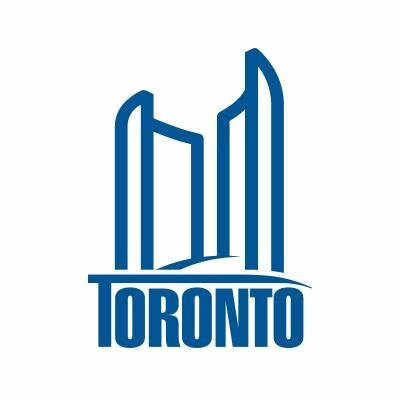
2) The EV Station Fund
At the Station Fund, they prioritize EV charging stations in areas with the fewest chargers per capita, in the Greater Toronto + Hamilton Area.
You can install up to 20 charging units at one or several locations in the Greater Toronto + Hamilton area and receive rebates up to 50% of the installation cost:
$ 5,000 per Level 2 charge port.
$15,000 per DC Fast Charge port.
$ 50,000 per DC Fast+ Charge port.
$ 75,000 for each DC Fast+ Charge port of 100 kW or more.
The Atmospheric Fund is a not-for-profit organization that invests in low-carbon solutions that benefit the Greater Toronto and Hamilton Area and help scale them up for broad implementation through financing, grants, and programs.
Visit the EV Station Fund to learn more.
Home EV charging station rebates in Prince Edward Island:
The Government of Prince Edward Island (PEI) is providing Islanders who take advantage of the PEI Universal EV Incentive (both BEV and PHEV) with a $750 charging discount. This discount can be applied towards the purchase and installation of a level 2 charger, or towards charging costs for those who are unable to install a charger.
Furthermore, the province of PEI has made a provincial rebate available to help with the up-front cost of an electric vehicle, which can be combined with other federal rebates for a total of more than $ 10,750 in savings with the purchase of an electric vehicle.
More information on the incentives is available from the Government of Prince Edward.

Zero-emission vehicles help fight climate change
Residents of Prince Edward Island can also count on the ZEV grant program offered by the Canadian government. This program offers significant incentives to Canadians who purchase or lease zero-emission vehicles (ZEVs).The Canadian government considers the following vehicles as ZEVs:
- battery-electric
- plug-in hybrid electric
- hydrogen fuel cell
For more information, visit the Government of Canada’s website.
![]()
Home EV charging station rebates in Quebec:
Launched in 2012, the Roulez vert Program aims to accelerate the electrification of the province of Quebec by offering grants for the purchase of electric vehicles (EVs) and the installation of charging stations. However, due to the high volume of applications, changes and a temporary suspension have been announced:
Temporary Suspension of the Program from February 1 to March 31, 2025
Important note: Due to high demand, the program will be suspended from February 1, 2025, to March 31, 2025. This suspension applies to both grants for electric vehicles and charging stations.
For Charging Stations
Eligibility: The purchase and installation must be completed before February 1, 2025, or after March 31, 2025, to be eligible for financial assistance.
Exclusion: Expenses incurred during the suspension period (February 1 to March 31, 2025) will not be eligible for financial assistance.
Gradual Reduction of Financial Assistance Amounts
Starting January 1, 2025, the government will announce a gradual reduction in the amounts granted for the acquisition of electric vehicles. This reduction will depend on the vehicle’s registration date and is expected to last until the end of the program in December 2026.
Rebates for Residential Charging Stations
- A $600 rebate for the purchase and installation of a Level 2 residential charging station.
Conditions:
The station must be new, approved by a certified organization, and the installation must be validated to receive the grant.
Rebates for Charging Stations in Multi-Unit Buildings
- Up to $5,000 per wireless station for multi-unit buildings.
Conditions:
The rebate is limited to the lesser of 50% of eligible expenses and a maximum of $5,000 per station or connector.
Useful References for Charging Stations in Multi-Unit Buildings:
Murbly - Tools to facilitate installation in multi-unit buildings.
RVE – Electric Vehicle Charging: Specialized in multi-residential electric vehicle charging.
Search by city in Quebec
- Home charging station grant in Berthierville
- Home charging station grant in Boucherville
- Home charging station grant in Canton De Shefford
- Home charging station grant in Chambly
- Home charging station grant in Coaticook
- Home charging station grant in Dollard-Des-Ormeaux
- Home charging station grant in Dorval
- Home charging station grant in East Angus
- Home charging station grant in Granby
- Home charging station grant in Joliette
- Home charging station grant in Kingsey Falls
- Home charging station grant in L’Assomption
- Home charging station grant in Lavaltrie
- Home charging station grant in Mont-Joli
- Home charging station grant in Nicolet
- Home charging station grant in Nominingue
- Home charging station grant in Terrebonne
- Home charging station grant in Vaudreuil-Dorion
- Home charging station grant in Waterloo
- Home charging station grant in Windsor
Home EV charging station rebate in Berthierville, Quebec
Available amount: $100
On March 2, 2020, the City of Berthierville adopted a subsidy by-law of $100 for the purchase and installation of home charging stations for electric cars for its citizens who own a residential building.
To be eligible, the building must be located on the territory of Berthierville and be residential. In addition, the home charging station must have been installed after March 2, 2020, be supplied with an electrical voltage of 208 to 240 volts and be installed by an electrical contractor holding a license from the Régie du bâtiment du Québec (RBQ).
Home EV charging station rebate in Boucherville, Quebec
Available amount: $150
The City of Boucherville offers a rebate of up to $150 to reimburse the cost of purchasing and installing the charging station by a master electrician.
Home EV charging station rebate in Chambly, Quebec
Available amount: up to $250
The City of Chambly has implemented a program to encourage its citizens to switch to an electric vehicle. This program provides a rebate of 25% of the costs of acquiring and installing a home EV charging station up to a maximum of $ 250.
Home EV charging station rebate in Coaticook, Quebec
Available amount: $250
The City of Coaticook offers a rebate of up to $250 to reimburse the cost of purchasing and installing the charging station by a master electrician.
![]()
Home EV charging station rebate in Dollard-Des-Ormeaux, Quebec
Available amount: $150
Dollar-Des-Ormeaux offers a rebate of up to $150 to reimburse the cost of purchasing and installing the charging station by a master electrician.
- Application form for the home EV charging station rebate in Dollar-Des-Ormeaux
- City of Dollard-des-Ormeaux Website

Home EV charging station rebate in Dorval, Québec
Available amount: $500
The City of Dorval has a program that offers a 50% rebate, up to a maximum of $500, to cover the costs of acquiring and installing a home charging station (level 2) for electric cars. This program has been in effect since January 1, 2019 for a single reimbursement per residence.
In order to benefit from the Dorval grant, you must provide the invoice as proof of purchase of the home charging station as well as the invoice of an electrician as proof of installation.
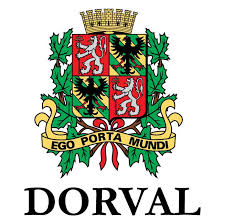
Home EV charging station rebate in East Angus, Quebec
Available amount: $100
It is possible for residents of East Angus to claim a grant of $100 for the purchase of a home charging station (level 2) to charge their electric car or plug-in hybrid vehicle. A permit request must be made to the building and environment inspector before installing the charging station. The East Angus grant has been available since April 1, 2019.
Home EV charging station rebate in Granby, Quebec
Available amount: $150
With the objective of preserving a healthy quality of the environment as well as reducing its ecological footprint, the city of Granby has implemented the City's Green Action Plan seeking to promote the electrification of transportation. This plan offers a discount equivalent to 15% of the purchase and installation of a home EV charging station up to a maximum of $150.
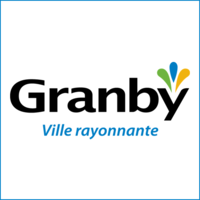
Home EV charging station rebate in Joliette, Quebec
Available amount: $250
The City of Joliette has implemented a program to encourage its citizens to switch to an electric vehicle. This program provides a rebate of 25% of the costs of acquiring and installing a home EV charging station up to a maximum of $250. For businesses the rebate is 25% of the costs of acquiring and installing an EV charging station up to a maximum of $500.
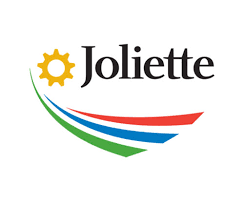
Home EV charging station rebate in Kingsey Falls, Quebec
Available amount: $250
The City of Kingsey Falls offers a rebate of up to $250 to reimburse the cost of purchasing and installing the charging station by a master electrician.

Home EV charging station rebate in L’Assomption, Quebec
Available amount for condo owners & homeowners: up to $150
Available amount for multi-residential building owners: up to $450
Eligible vehicle owners living in the Municipality of L’Assomption can receive a rebate on new, non-portable home EV chargers. Only one EV charging station per household is admissible for this financial aid, which would result in a rebate of $150. For condo units, it’s possible to be entitled to a rebate of $100 per charging station upon written confirmation from their syndicate of co-ownership. There is a limit of 2 EV chargers per property with 6 homes (2x$150), resulting in a rebate of $300, and a limit of 3 EV chargers per property of 7 homes or more (3x$150) for a rebate of $450.

Home EV charging station rebate in Lavaltrie, Quebec
Available amount: up to $150
A rebate of $150 per residence is granted for the installation of a home EV charging station in the city of Lavaltrie. Only one charging station per private dwelling can be subsidized and a maximum of five charging stations per multi-unit.

Home EV charging station rebate in Mont-Joli, Quebec
Available amount: up to $200
The City of Mont-Joli offers a grant to the owner of a residential building (house or condo) covering 50% of the cost of the purchase of the charging station, or up to $200.

Home EV charging station rebate in Nicolet, Quebec
Available amount for homes: $500
Available amount for commercial: $500
In 2008, the City of Nicolet adopted an environmental policy, one of its objectives being to encourage energy savings in transport and buildings, in order to reduce the emission of greenhouse gasses.
With this in mind, the City encourages businesses and organizations to install charging stations for electric cars to make them available to the homeowners and commercial building owners.
For both applications, residents and business owners on the territory of Nicolet can receive $500 for a new Level 2 charging station.
- Application form for the home EV charging station rebate in Nicolet
- Application form for a commercial charging station rebate in Nicolet
- City of Nicolet website

Home EV charging station rebate in Nominingue, Quebec
Available amount: $100
The City of Nominingue offers a rebate of up to $100 to reimburse the cost of purchasing and installing the charging station by a master electrician.

Home EV charging station rebate in Terrebonne, Quebec
Available amount: $200
The City of Terrebonne offers a rebate of up to $200 toward the EV charging station’s purchase cost as well as installation by a master electrician.

Home EV charging station rebate in Vaudreuil Dorion, Quebec
Available amount: $150
To encourage the purchase of electric vehicles, Vaudreuil is offering a refund of $150 for the purchase and installation of a home charging station. The charging station must have been purchased from a Quebec-based retailer, and the required documents must be submitted BEFORE December 31 of the reference year in which the purchase and installation were completed, in order to be eligible.
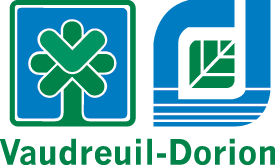
Home EV charging station rebate in Waterloo, Quebec
Available amount: $100
The City of Waterloo is offering a $100 grant to citizens who wish to purchase an electric charging station upon presentation of an invoice until the budget is completely used up.
![]()
Home EV charging station rebate in Windsor, Quebec
Available amount: $150
The City of Windsor is offering a $150 grant to citizens who wish to purchase an electric charging station upon presentation of an invoice until the budget is completely used up.
![]()
Home EV charging station rebates in Saskatchewan
Currently, there is no subsidy for the purchase and installation of a home charging station in Saskatchewan. However, as part of the new iZEV program, the Government of Canada is offering discounts of up to $ 5,000 for the purchase or for the purchase or rental of eligible zero-emission vehicles (ZEV). The discount is applied directly to the price of the sticker at the dealership at the time of purchase or rental.
For example, the Government of Canada considers the following vehicles to be ZEVs:
- battery-electric
- plug-in hybrid electric
- hydrogen fuel cell
For more information, visit the Government of Canada’s website.![]()
Home EV charging station rebates in Yukon:
This year, the Government of Yukon is offering EV rebates in the aim to reduce the carbon footprint within its territory. Residents have access to rebates that apply to EV charging stations and zero-emission vehicles, including recreational vehicles.
1) Good Energy rebates - Government of Yukon
Apply for a rebate to install a Level 2 electric vehicle charger.
The EV rebates are available for the following properties:
- Single detached homes; duplexes; triplexes; and mobile homes
- A rebate for 50% of the purchase and installation costs up to a maximum of $750 for one Level 2 EV charging station at a personal residence.
- Multi-unit residential buildings; commercial buildings; or apartments.
- A rebate for 75% of the purchase and installation costs up to a maximum of $7,500 per installed Level 2 charger.
- For municipal and First Nations government buildings
- Rebate covering 90% of the cost of purchasing and installing a Level 2 charging station, to a maximum of $9,000 per station.
To be eligible for the program
Your level 2 charging stations must be:
- WiFi enabled.
- 240 volt plug with output power between 3 kilowatt and 20 kilowatt such as Bosch’s home charging stations like the EVDuty, the FLO or Sun Country Highway.
More information on the rebates is available from the Government of Yukon.
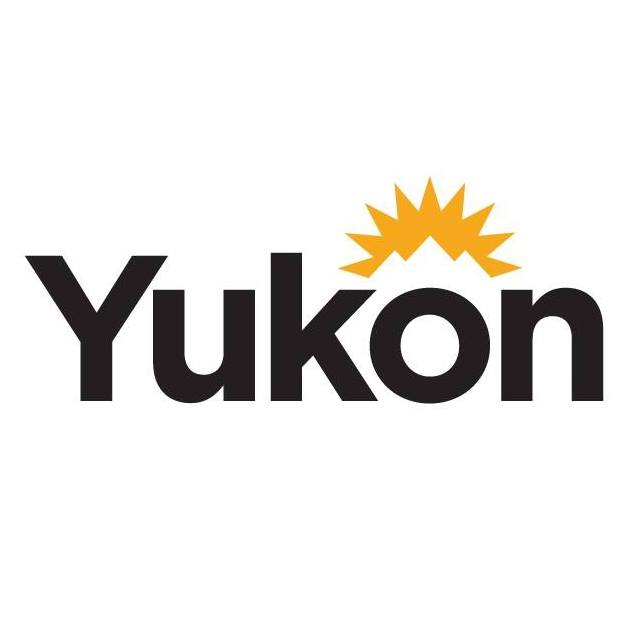




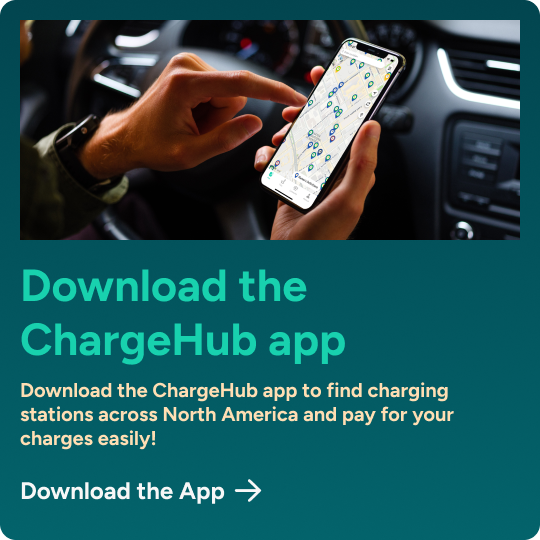
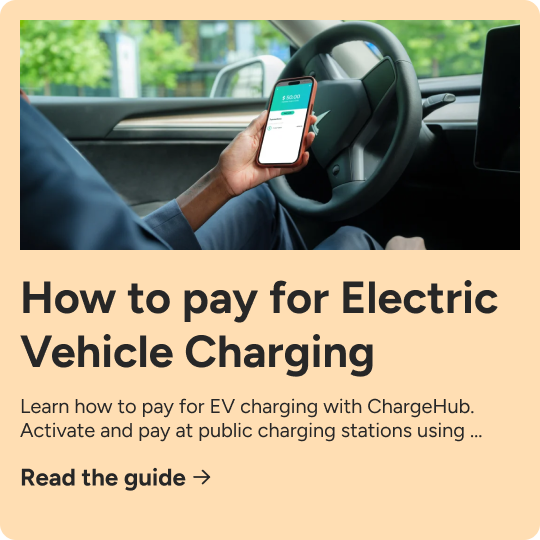



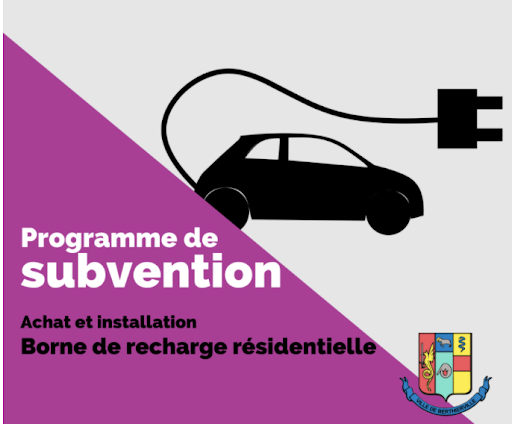



.jpg?width=840&height=560&name=Charger-Comparison%20(1).jpg)
